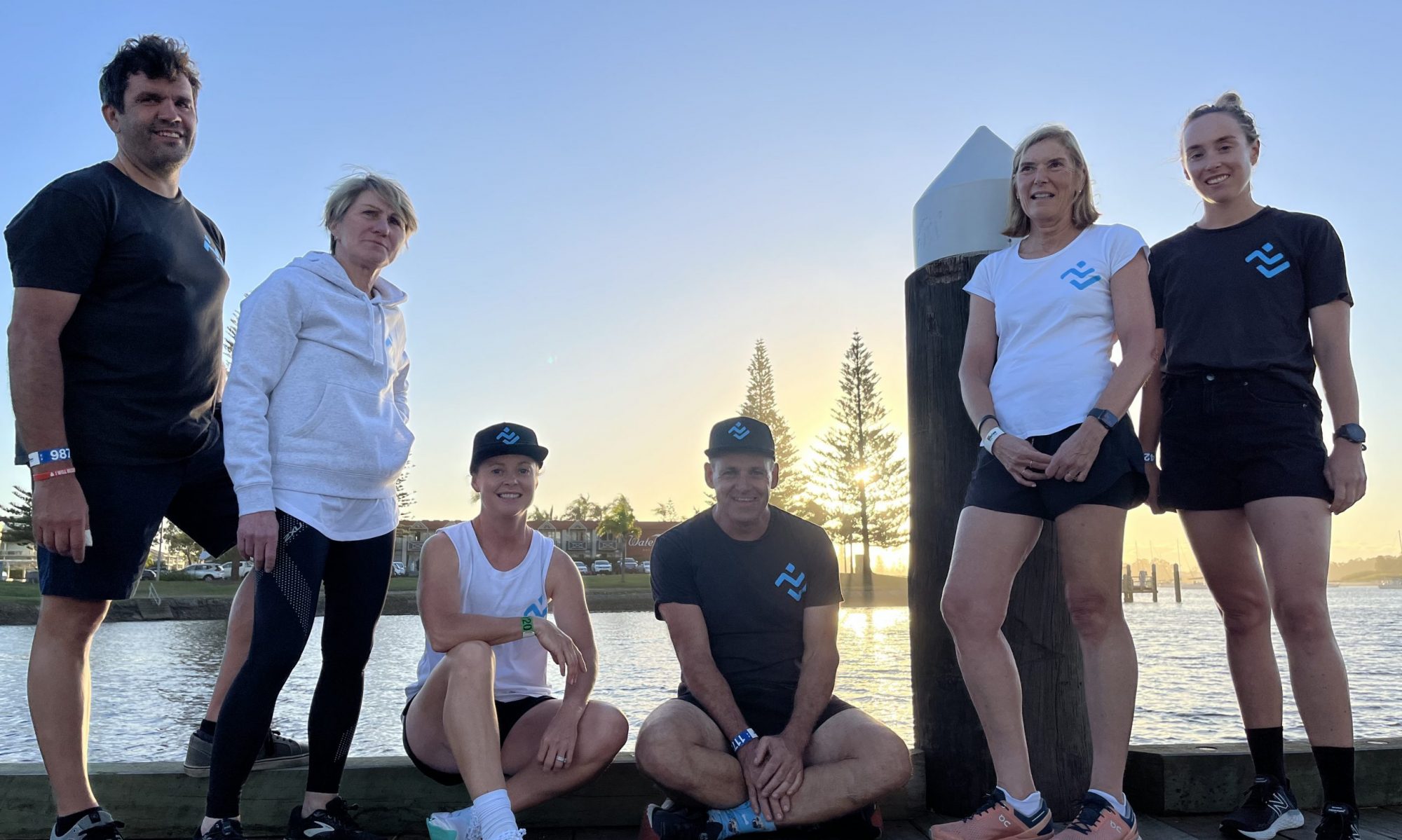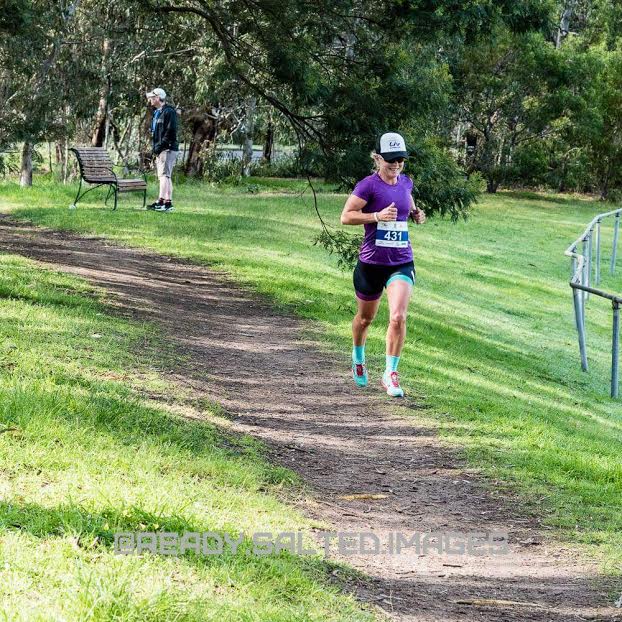Follow Coach Sarah as she shares her training and racing journey. She will share not only what her training looks like, but her day to day nutrition, recovery, the mental side of training, the 1%rs, the ups and the downs, her favourite sessions, break throughs, realisations and now,her journey with a bub on the way! She will show you that training to your optimal performance doesn’t have to mean spending every spare hour training or every waking moment tired….
Sometimes I question – can I still call myself a triathlete at the moment? I’m not training hard, I’m not following a specific structured plan, I’m not racing. So how can I still call myself a triathlete? And what even defines someone as a triathlete? It seems silly really that we can even question ourselves, but I guess that’s the nature of being human right?!
I remember conversations I’ve had with athletes over the years and they down play labelling themselves a ‘triathlete’ by saying things like ‘I’m not a triathlete, I just do triathlons‘ as if their ability, fitness, skill or experience means they aren’t worthy of calling themselves a triathlete.
A definition of a triathlete is someone who competes in triathlon. So anyone who trains for triathlons and toes the start line in my eyes is a triathlete – no matter your ability or finishing time. Just like any other sport. SO keeping that in mind, I remind myself that yes, I am still a triathlete. And although it may be more than 12 months between my last race in December 2016, and my planned racing return in 2018, everything that I am doing now is helping me to not just support the growth and development of my growing bump, it is also ensuring I remain fit, healthy and capable of returning to ‘proper’ triathlon training once bubs arrives. My partner and I already joke that when bubs does arrive that I will be passing the baton that quickly that I’ll be out the door before I have barely had time to register the baby is here! (Well maybe not to that extreme, but I’ll definitely be keen to join back in bunch rides as soon as my body allows!)
So even though I won’t be racing this year, I thought it would be interesting to share what training looks like for me – nearly 6 months pregnant. 6 months! That’s a little scary when I think about it! But honestly there is not much that my body can’t do that it wasn’t doing before, so I don’t see it as much of a hindrance at all, and I’m certainly not using it as an excuse to not continue training.
Each week for me looks different, and although training isn’t my highest priority, it’s still a priority for me. There are not many days in a month that I don’t move my body in some way. My plan is to look at my training as a reverse periodisation. I was at my peak in December 2016 when I last raced, and instead of looking at it like I’m gradually loosing fitness, I’m viewing the decrease in load and intensity with a purpose and with a goal in mind. For me – this goal is to remain as fit and healthy as possible right up to when bubs is born. But in doing so, the de-load in training will occur gradually over each month all while listening to my body. I’m currently now training around 10 hours a week, which has dropped from around 14hours a month ago.
My training week at 6 months pregnant:
1-2 x 1hr windtrainer sessions a week, with a mix of aerobic endurance,strength and short high intensity efforts
(I’m not afraid of putting my body through short high intensity work given it has always been used to it)
1 x 1+hr MTB trail ride (for fun!)
2 x 30-60min easy aerobic runs
1 x 1hr pilate session
2 x 1/2hr home based S&C sessions
2-3x 1+hr walks a week
Total: 8-10hrs of training a week.

The above training is working really well and I’m feeling strong and healthy. Each session I still always listen to my body and don’t push it when it doesn’t want to be pushed. Some days I’ll plan to go for a run but I start out and it turns into a run/walk or sometimes a walk, simply because that’s what my body tells me it wants that day. I don’t fight it, I just roll with it, knowing that tomorrow I could feel totally different. Just as when I’m in full training, it’s imperative that I listen to what my body is telling me. My legs sore? Back stiff? Do I need some extra rolling/ stretching? Or even a massage? Tired/fatigued? Do I need to back it off? Have a day off? Am I fuelling enough? With the right foods? At the right times? Continually assessing and reassessing how I’m feeling and training and fueling intuitively is important, regardless of the phase or type of training your in.
So, I look at my training now as a really long build into a race. Laying down the foundations and the building blocks to a strong, robust body that is capable of re-introducing the load when it’s time, and not before. So technically I’m having ‘time off’ from racing, but the foundations are still being laid for my next race- no matter how far away that race is.
And so that’s when I reflected and compared this to when many other athletes have time off from structured training and racing. If you want to be in the sport for a long time, then this time is crucial to refresh the mind and the body, but where some athletes go wrong is during ‘time off’ structured training, they really let themselves go. They have been training vigorously throughout the season and then as soon as the season is over it’s like bang. Stop! No training (or exercise), nutrition goes out the window, health isn’t a priority as they feel like they have ‘earned’ the right to let everything go.
So no wonder it feels so hard to get back into the groove. You stop for a few weeks and you’ve de-conditioned your heart, your lungs and your legs. Your VO2 max significantly decreases after just 2 weeks of stopping exercising, along with your lactate threshold and aerobic endurance. Your muscle mass starts to decrease (although not at as high rate) and with this – your strength. Don’t get me wrong it’s super important to have down time after a key race or a season, but just like any healthy human being, our bodies are designed to move, so some form of daily movement is what our bodies want and should give them. That can be as simple as going for a walk! (why is it that so many triathlete find walking so difficult??!)
So no matter the phase of the training program you are in, ensure you are still listening to your body and remaining consistent. That doesn’t mean you have to train hard all year round, it means to stay consistent with training and remaining healthy and your body will thank you for it when you ask it to push hard again. You will have a far easier time getting back into the harder training and far less chance of injury and illness.
And if it’s you having some extended time off racing, no matter your reason, know that if you still have a plan and still have a goal, no matter how far away that may be, you ARE still a triathlete. 😉
Happy training,
Coach Sarah


